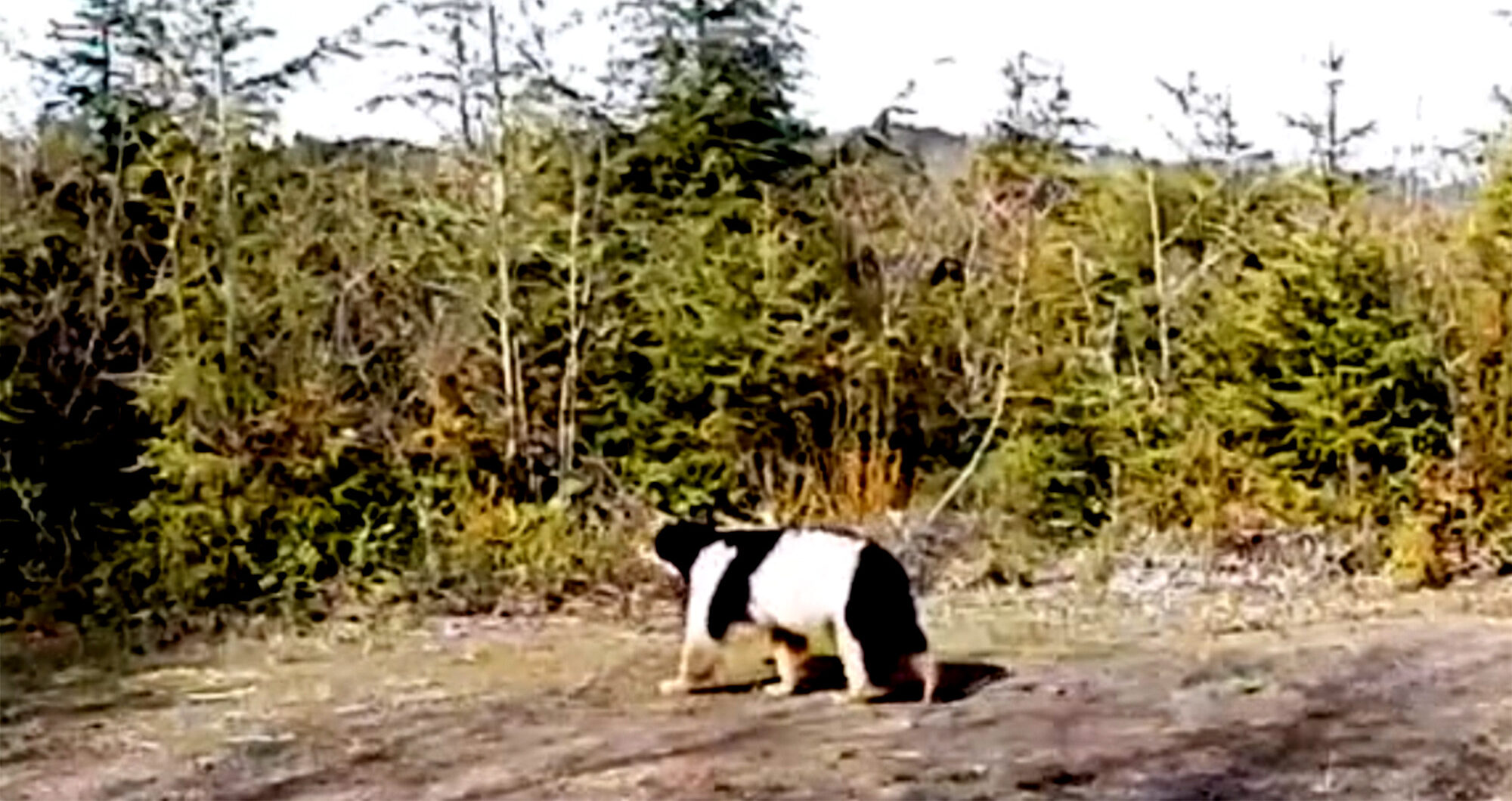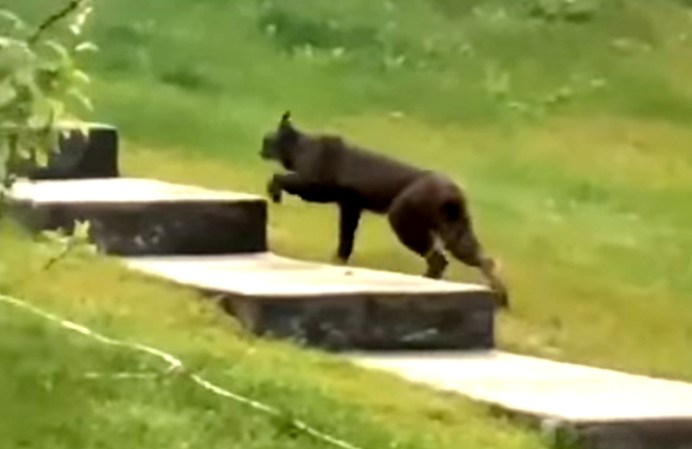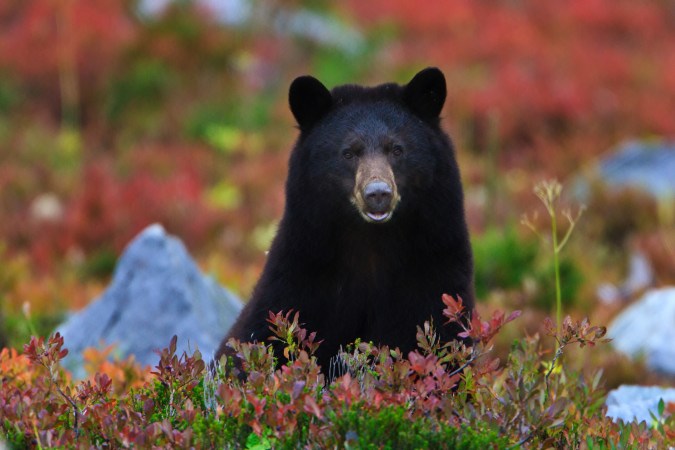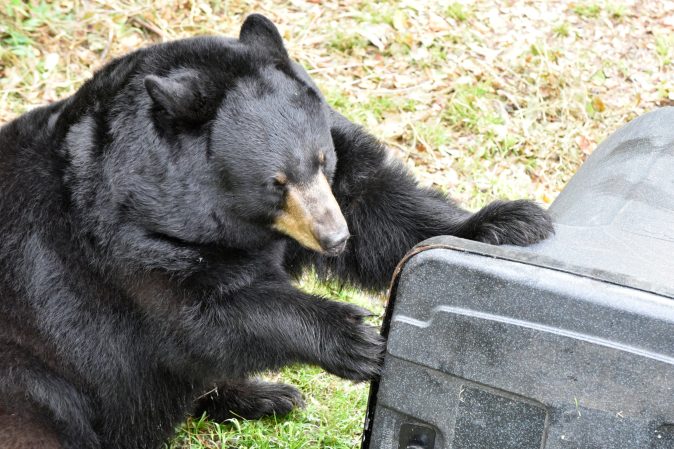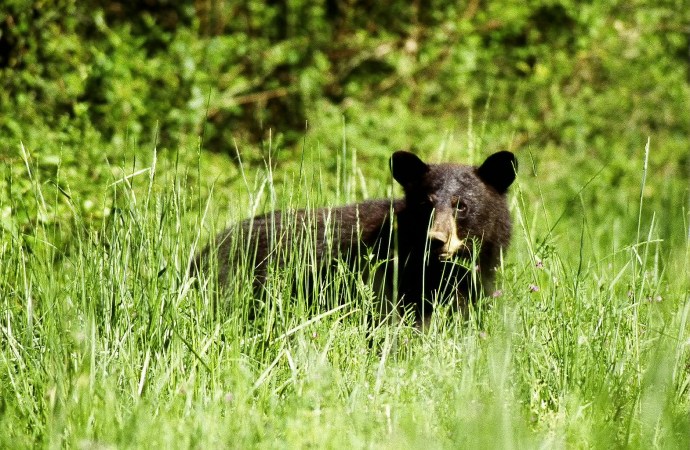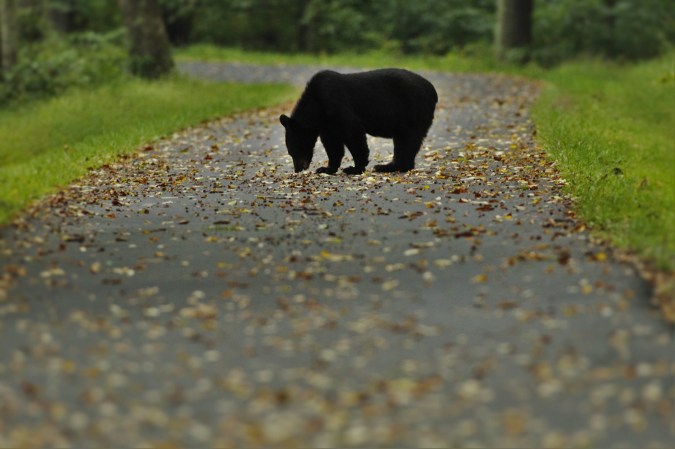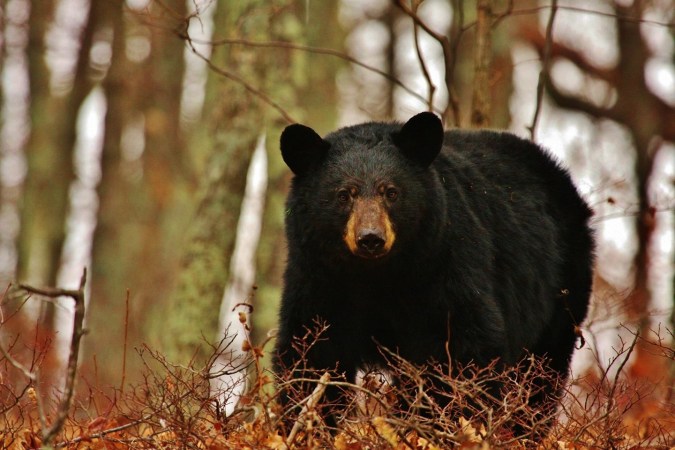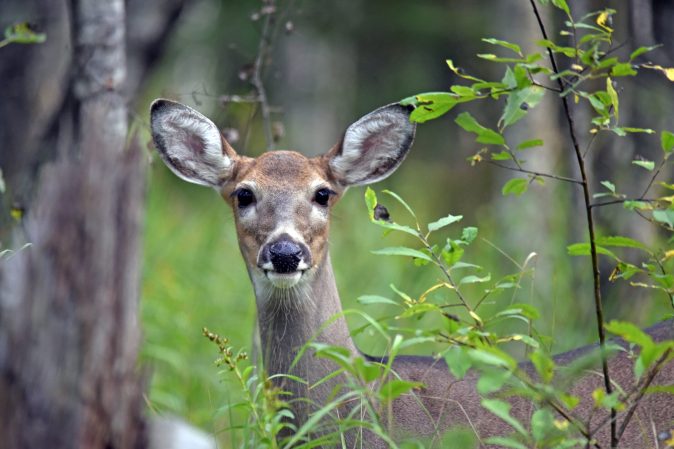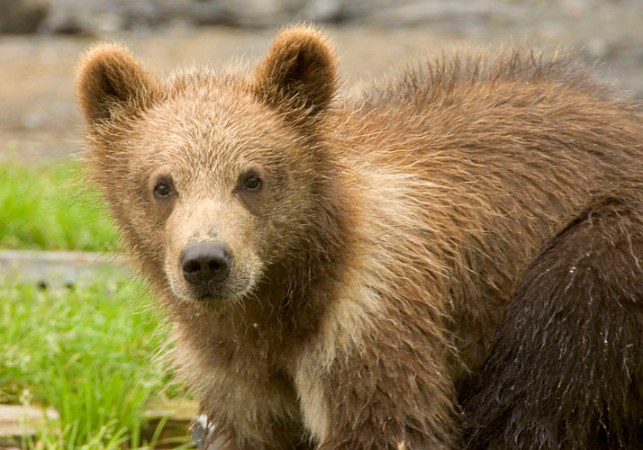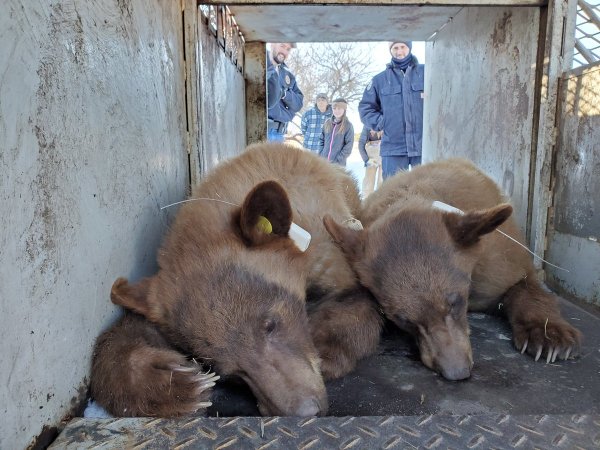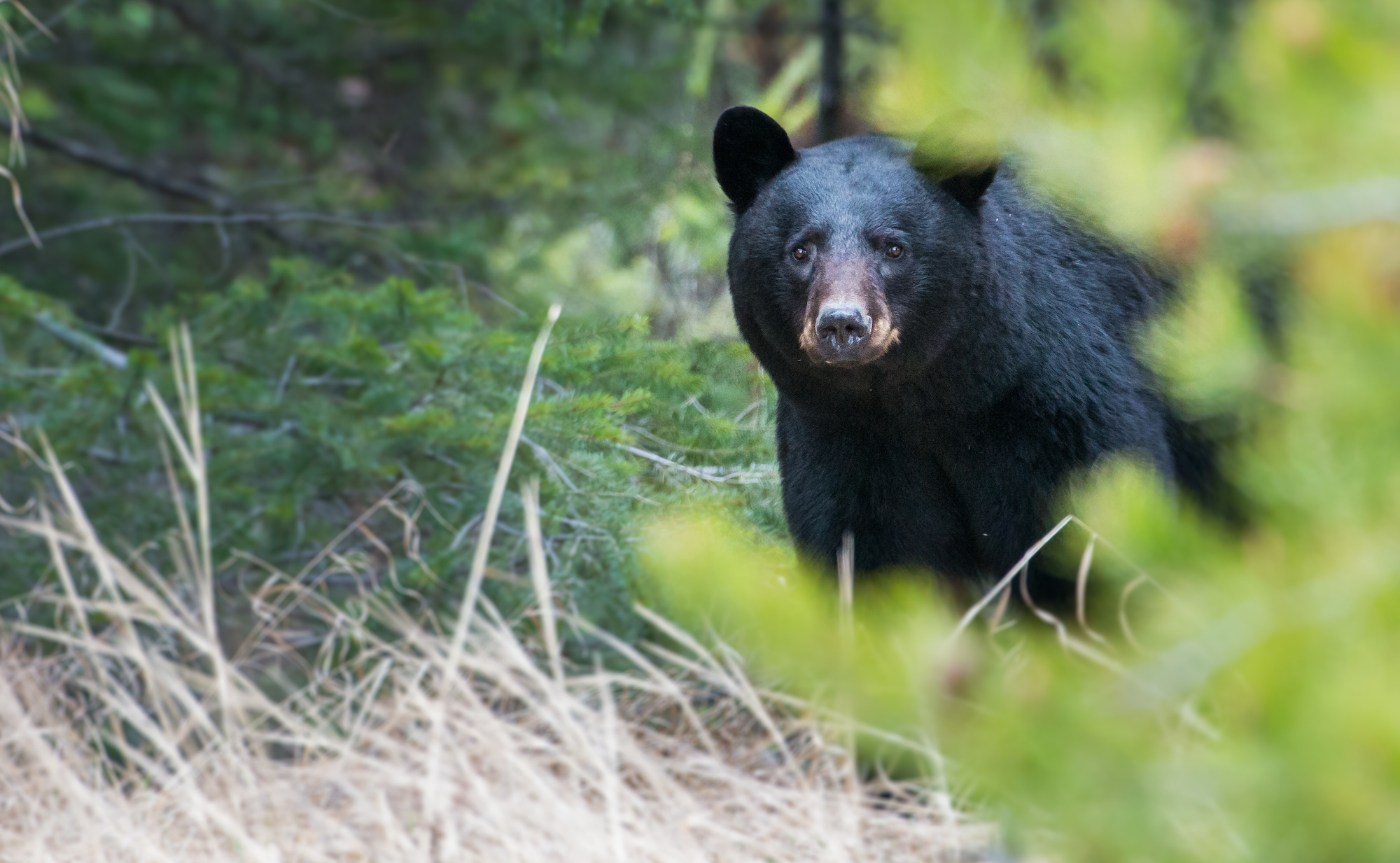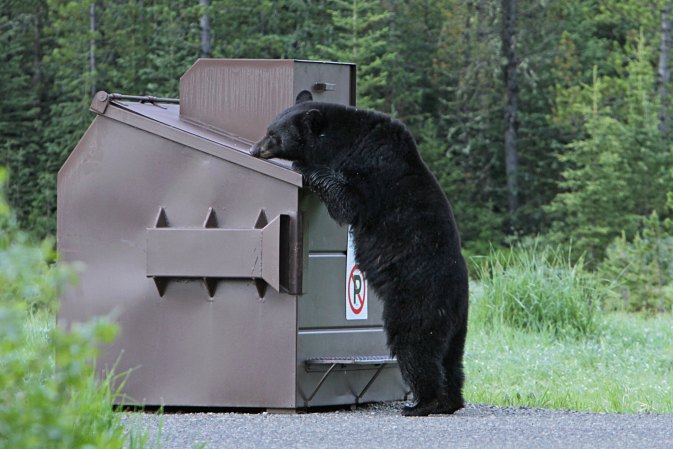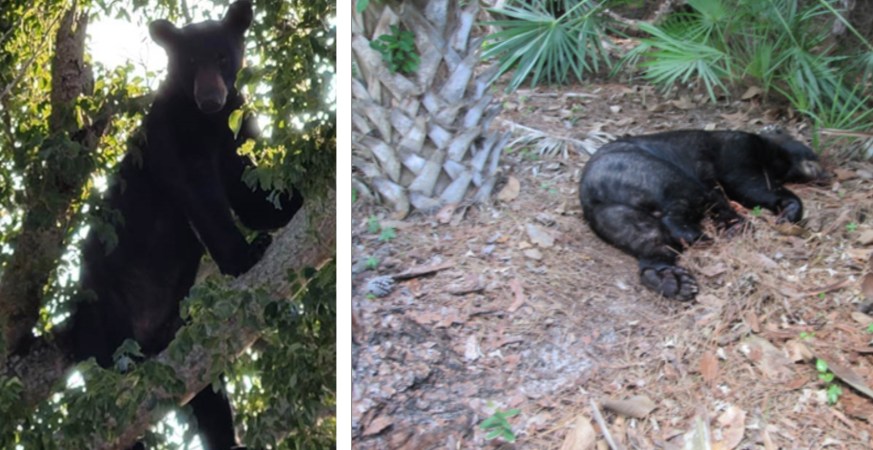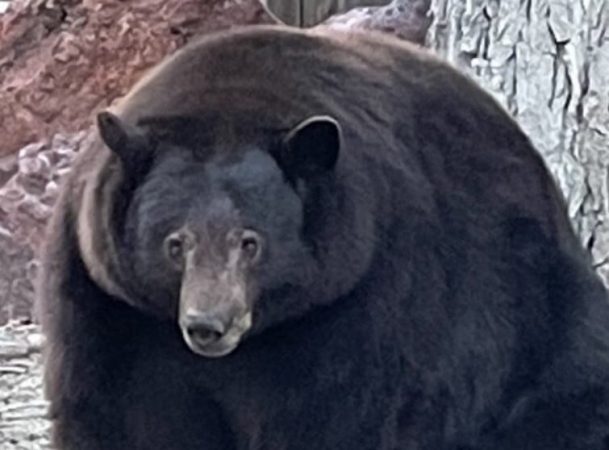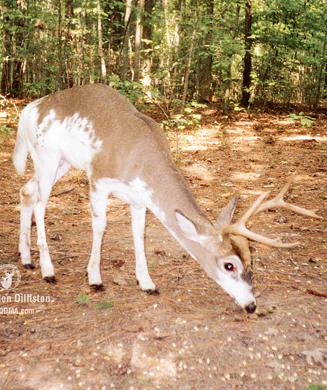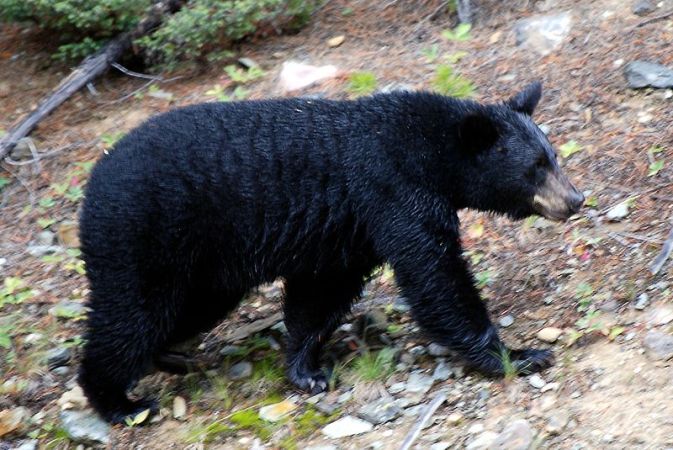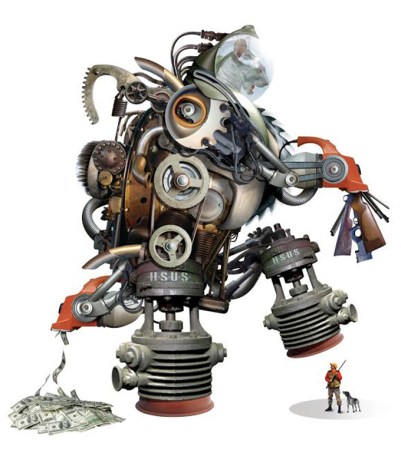Recent video footage out of Washington State shows a rare quadruped walking across a clearing in the woods: a piebald black bear. The short clip was shared to TikTok (and then re-shared on Facebook) earlier this week, where it’s generated some speculation from a few social media users. According to the video’s description, it was recorded on the Shoalwater Bay Reservation near Tokeland in the southwest corner of the state.
At first glance, the animal looks a bit like an overgrown sheepdog or a domestic pig that spent way too long at the trough. Upon closer examination, it clearly has the body shape and gait of a bear—but with the coloration of a Holstein cow. Perhaps, as one person pointed out, it’s an escaped exotic looking for a patch of bamboo.
“That’s a big ol’ panda,” they wrote in a Facebook comment.
Speculation and jokes aside, the bear in the video is clearly a piebald black bear. This genetic condition also affects humans, and it has been documented in plenty of other animals, including snakes, foxes, and all cervid species. Piebaldism is more common than leucism and melanism, which are also genetic conditions that cause an animal’s skin or fur to be almost entirely white or all black, respectively.
Piebald animals, on the other hand, typically just have unpigmented patches. This causes an otherwise normal black bear to look like a giant panda. The condition has no effect on the health of the individual, according to medical sources.
Read Next: Pennsylvania Poacher Riles Local Community by Taking Rare Piebald Buck Out of Season
Piebald whitetail deer, while still rare, are seen every year. Roughly one in every 1,000 whitetails is piebald, according to the North Carolina Wildlife Resources Commission. (There are, of course, significantly more whitetail deer than black bears in North America, so it’s not surprising that piebald deer are more common than piebald bears.)
It’s unknown what percentage of Washington’s roughly 20,000 black bears inherit the genetic condition, and the Washington Department of Fish and Wildlife did not immediately respond to requests for comment. There is little information regarding piebald black bears online, and one of the only available photos of a piebald black bear was taken in British Columbia in 2021.

